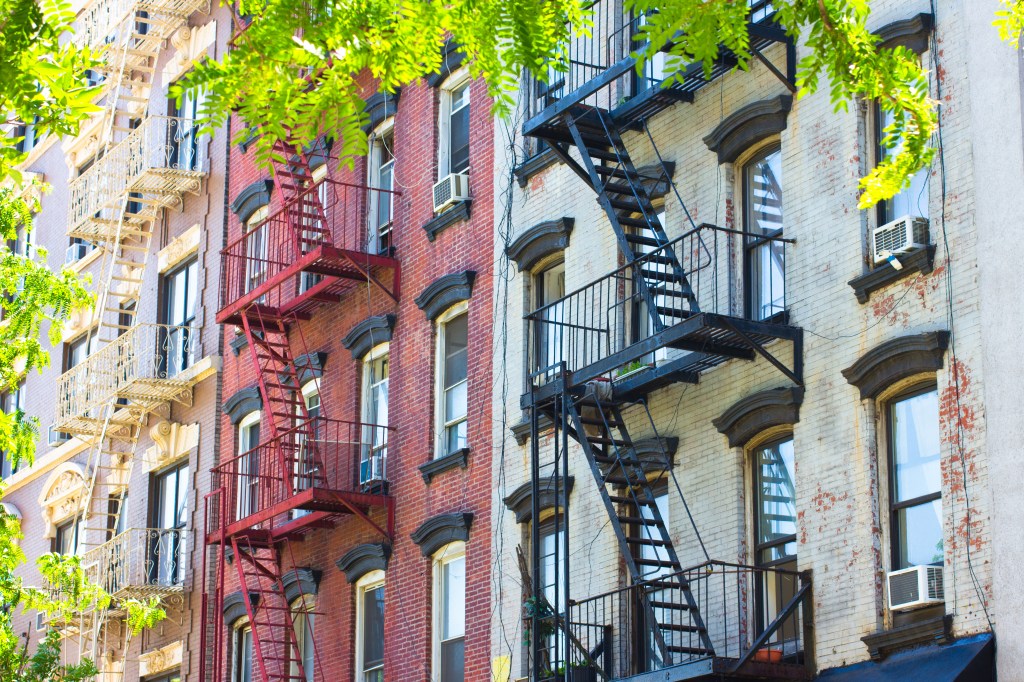When Zara Realty purchased the 81-unit apartment building on 171st St. in Jamaica, Queens, in 2012, it was a thriving community of long-term residents: working-class families of color and immigrants who looked after each other across different languages and cultures. Six years later, nearly two-thirds of the tenants were gone. How could this happen?
One reason: A key state agency — the Division of Homes and Community Renewal (DHCR) — is asleep at the wheel.
DHCR allowed Zara to raise per-unit rents at 171st St., a rent-stabilized building, by up to $600 a month — several times what is normally allowed under state law — circumventing the usual safeguards New Yorkers have come to depend on.
In the last decade, DHCR has stood by as Zara reaped record profits by inflating their claims of money spent on maintenance and renovation by millions of dollars.
DHCR is a little-known agency with an outsize responsibility. It is tasked with preserving rent-regulated housing, a bastion of affordable living for half of New York City’s tenants. With apartment availability at all-time lows, rent-stabilized buildings face constant threats from landlords trying to flip the units to market-rate, evicting working class New Yorkers and eroding communities.
Nowhere are the failures of DHCR more glaring than in the case of Zara Realty, a significant player in New York real estate, with more than 40 rent-stabilized properties in Queens.
Zara Realty already faces a lawsuit by state Attorney General Leticia James, for violating the state’s rent stabilization laws — the very laws that DHCR is tasked with safeguarding. Yet DHCR has for more than a decade allowed Zara to illegally increase rent based on phony accounting and fraudulent claims.
Here’s how it works: Under New York’s rent stabilization system, landlords are awarded annual rent increases to cover maintenance and operations. Even though these annual rent increases have historically been as high as 11%, landlords are allowed to “double dip” and request higher rent increases when they make so-called Major Capital Improvements (MCI).
An MCI must represent a large investment in the building’s upkeep, such as replacing or renovating significant pieces of infrastructure: a boiler, an elevator or the roof. Landlords have to submit documentation that justifies raising the rent — and promises that raising the rent will not cause “substantial hardship and dislocation.”
Zara Realty applies for MCIs constantly — and its applications are full of inflated costs, uncompleted work and cuts to basic maintenance and services. Basically, they’re full of reasons for DHCR to deny them.
And yet DHCR has repeatedly approved Zara’s MCI’s over objections from tenants and lawyers.
In one MCI application from 2018, Zara told DHCR that they had paid $2.5 million to repair a brick façade on a Jamaica building. Yet when Zara told the city’s Department of Buildings about the same job, they arrived at a different figure: $218,000, less than a tenth of what they reported to DHCR.
When DHCR approved that application — despite tenant attorneys pointing out the obvious discrepancy — apartments in that building immediately faced rent increases up to $500 per month.
Advocates for tenants have documented 24 fraudulent MCI applications across 10 different Queens properties owned by Zara. DHCR has approved all of them, causing hundreds of families — predominantly working class immigrants and people of color — to leave their buildings because they simply cannot afford the rents any longer.
The irony is that this fraud is almost besides the point: State law requires DHCR to block all rental increase applications from landlords like Zara that fail to provide basic services. In several cases, Zara has suddenly changed building locks without notice, leaving families locked out of their homes for hours. In June of last year, paramedics were called to a Zara property in Flushing — and found themselves unable to enter due to a broken intercom system. The tenant they were called for died later that night.
So far, nothing has changed the status quo — not formal letters from lawmakers, nor direct confrontations of DHCR leadership, nor appeals of these MCIs, nor street protests. It’s time to try something new.
In May, tenants and their nonprofit legal teams filed a lawsuit against DHCR in Queens Supreme Court to compel the agency to do its job, and issue decisions on the many long-running appeals of these rent increases that tenants have filed over the years.
As these tenants’ state senators we call on DHCR to seize this opportunity to rectify its unlawful approvals of Zara MCIs and that way prevent further displacement of hundreds of working class families.
It’s not just the right thing to do. It’s what the law requires them to do.
Comrie, Liu, Ramos and Stavisky are state senators from Queens.
